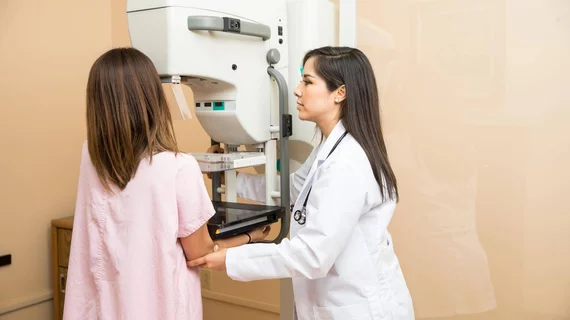Lower mammography recall rates correlated with higher interval cancer rates
New research published online April 3 in Radiology has found that mammography recall rates are correlated with higher rates of breast cancer detected between screenings.
Study results prompted researchers to suggest that a minimum recall rate should be a goal for breast cancer screening programs, according to a press release published online April 3 from the Radiological Society of North America (RSNA).
“A big-picture lesson in our study is the power of rigorous quality assurance infrastructure to help breast cancer screening programs learn from actual practice and use that information to make informed programmatic decisions for the future,” co-author Elizabeth Burnside, MD, MPH, from the University of Wisconsin's School of Medicine and Public health in Madison, Wisconsin, said in a prepared statement.
Burnside and colleagues found that the mammography recall rate was 4.56 percent with an interval cancer rate of 0.003 percent patients screened, according to study results. The team analyzed more than five million mammography exams of women ages 50 to 70 years old from 84 facilities apart of the U.K. National Health Service Breast Screening Program, in addition to the data being from a three-year period with a three year follow up exam.
Additionally, the researchers found that cancer detection rates and interval cancer rates were lower in younger age groups.
“Recall rate had more of an impact on interval cancer in patients who are older,” Burnside said in a prepared statement. “The lower number of recalls required per interval cancer avoided in older women and incident screens as compared to younger women and prevalent screens, respectively, demonstrates a slightly different 'value' in terms of the trade-off between recall rate and interval cancers.”

